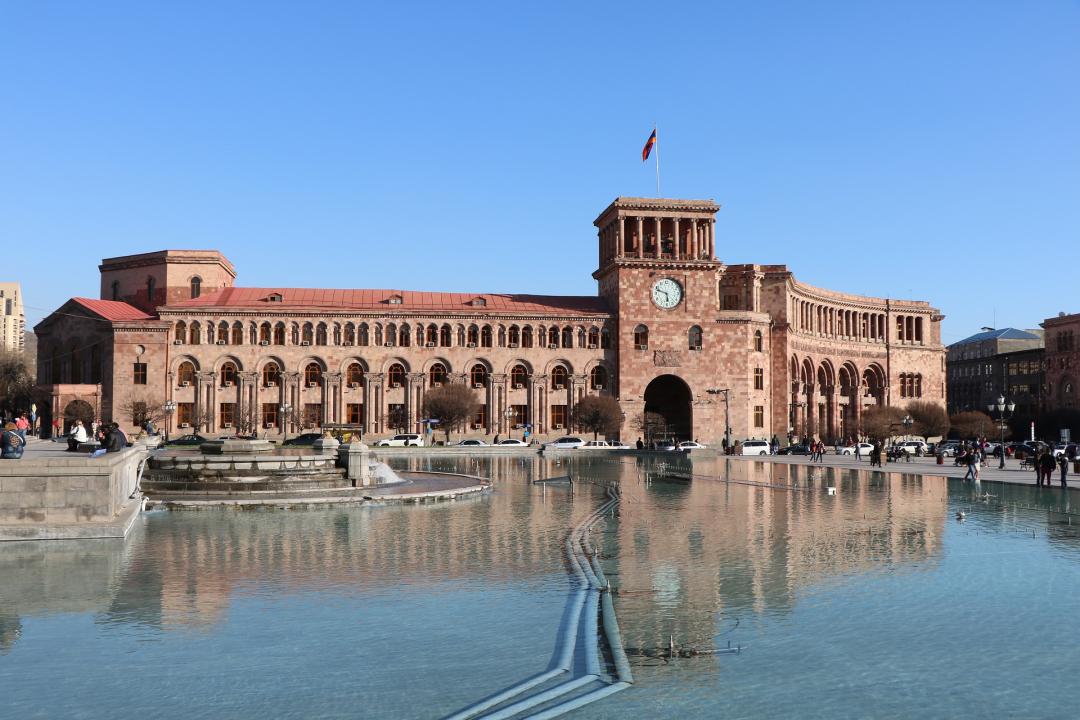
Political crisis in Armenia: Pashinyan presents roadmap, opposition figures charged

On 18 November, Armenia’s Prime Minister Nikol Pashinyan presented a roadmap to overcome the current situation in the country and establish stability and security.
The roadmap foresees:
1) the resumption of the negotiation process on the Karabakh issue in the format of the OSCE Minsk Group Co-Chairmanship with an emphasis on the status of Nagorno-Karabakh and the priority of the return of the Armenian people of Nagorno-Karabakh to their places of residence;
2) Full restoration of normal life in Nagorno-Karabakh and reconstruction of damaged houses, apartments and infrastructures;
3) The early return of captured soldiers and civilians, as well as provision of social guarantees to the families of the dead servicemen and civilians;
4) Approval of the Armed Forces Reform Program and the start of reforms;
5) Overcoming the Covid-19 pandemic and eliminating its consequences;
6) Restoring the atmosphere for economic activity;
7) Activation of programs to resolve demographic problems;
8) Adoption of amendments to the Electoral Code and a new law on political parties;
9) Introduction of the institution of specialised judges as the first step towards the creation of an anti-corruption court;
10) Conducting regular thematic consultations with representatives of political parties and civil society organisations, as well as representatives of the Armenian diaspora regarding the situation in the country.
Pashinyan said that it would take six months to launch the irreversible process of implementing these measures and that in June 2021 he would present a report on the roadmap’s implementation. He made no mention of his possible resignation and fresh parliamentary elections demanded by the Armenian opposition. When asked about the opportunity to form a government of national consent, Pashinyan said that it was more important to have an atmosphere of national consensus then to form such a government.
It was also reported that Armenia’s Defence Ministry’s Chief Military Inspector Movses Hakobyan submitted his resignation and that Armenia's Deputy Foreign Minister Artak Apitonyan would replace Zohrab Mnatsaknyan as the country’s Foreign Minister.
Meanwhile, the country’s National Security Service (NSS) said it has identified more than 70 organisers and participants of the opposition protests and arrested 15 of them. The leader of the opposition Fatherland (Hayrenik) party Artur Vanetsyan stated that the brought charges only serve to suspend the activity of Pashinyan’s political opponents. “Instead of focusing on serious work – publication of lists of killed, captured, missing servicemen, [immediately] starting… the process of exchanging captured servicemen and freeing them from captivity, they are engaged in political persecutions at the expense of our tax payers,” he said. Speaking on Pashinyan’s roadmap, Vanetsyan said that a person who failed in all sectors of Armenia’s public life for 2,5 years, is not able to publish a roadmap.
The leader of Bright Armenia opposition party Edmon Marukyan met with the US Ambassador to Armenia Lynne Tracy to discuss the situation regarding the Nagorno-Karabakh conflict, the respective humanitarian crisis and the latest political developments. Tracy presented the US position in this regard and she underscored her country’s assistance to the democratic institutions and processes in Armenia.
See Also


Armenia Records 5.9% GDP Growth in 2024, Missing 7% Goal

Yerevan Balances Strategic Ties with Both US and Russia, Says Foreign Minister

FM Mirzoyan: Peace Deal with Azerbaijan Is Within Reach

Pashinyan and Erdogan Hold Call, Reaffirm Commitment to Ongoing Dialogue

